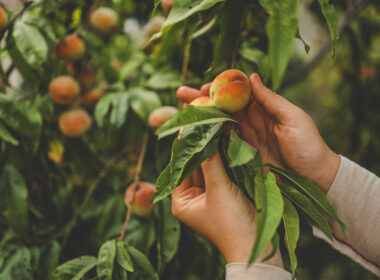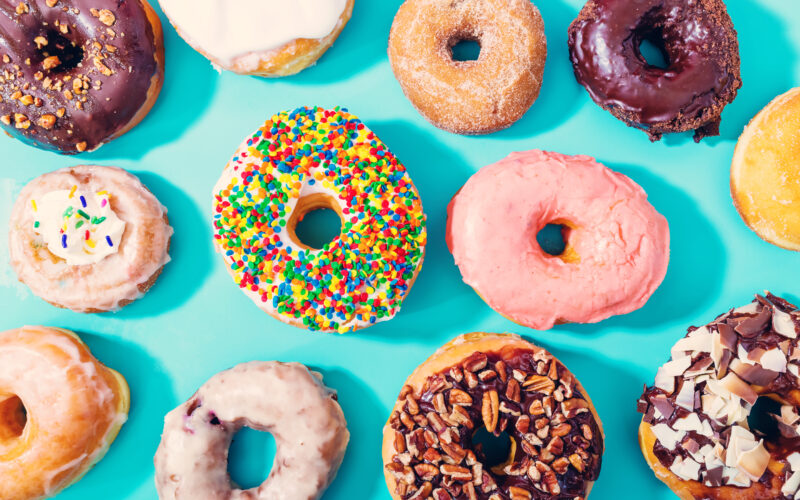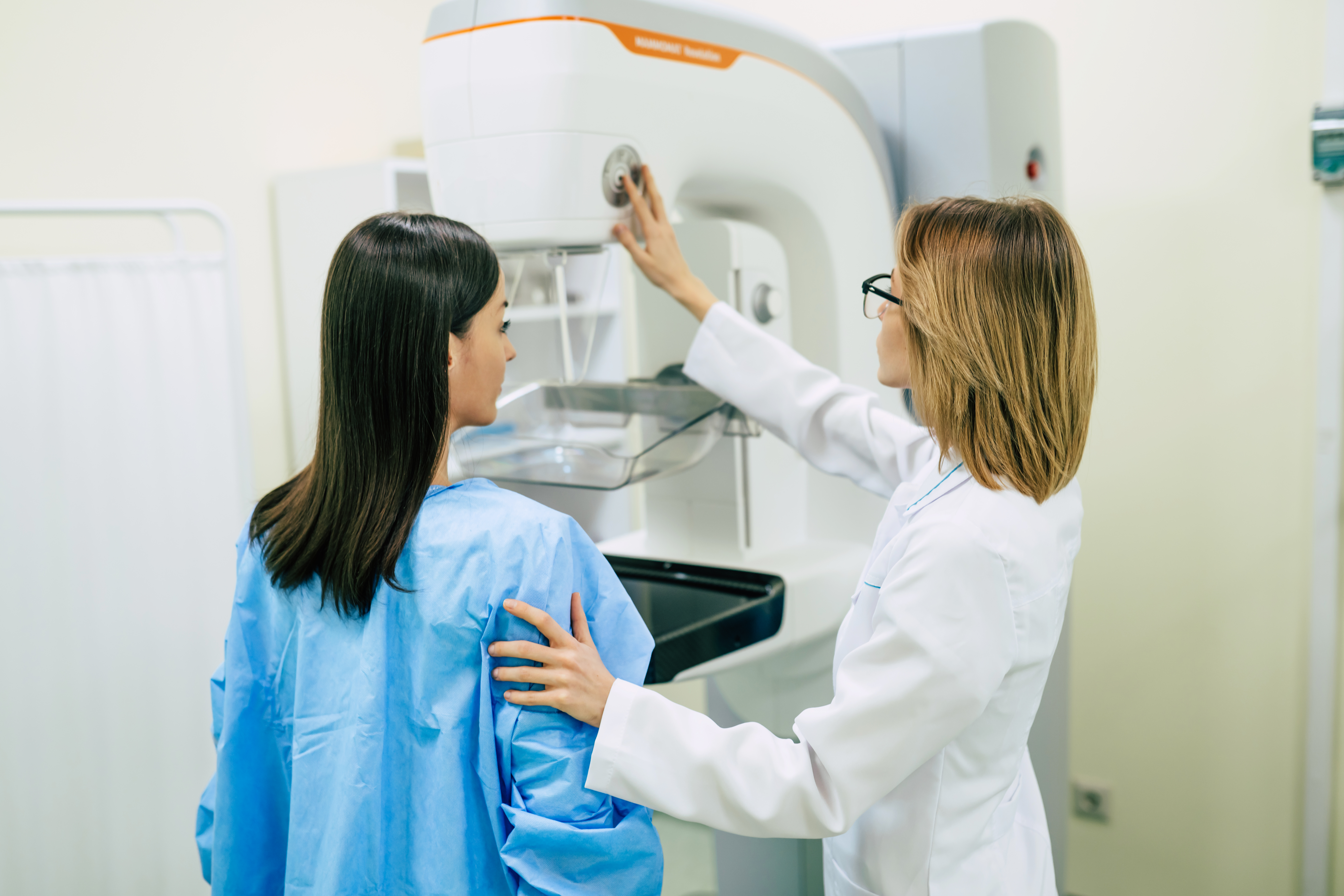It’s a few days before your period is supposed to start, and all you can think about is a giant slice of chocolate cake. Or maybe a donut, or milkshake, or the classic pint of ice cream. Or maybe all of the above?
If you’re like me, the time right before restarting your cycle is the most difficult time to resist all sorts of sugary treats, especially when you start thinking to yourself “well, I deserve this.” While it’s okay to indulge a craving from time to time, eating endless amounts of sugar (or other simple carbs) at any point in your cycle is not the best option in terms of your hormonal or physical health. So, why is it that we crave sugar so strongly before our periods, and (more importantly) what can we do about it?
Why do we crave sugar before (and during) our periods?
There’s actually a scientific reason that we crave sugar before and during our periods. As you near the end of your current cycle and begin the transition from the luteal phase into the next cycle’s menstrual phase, the hormones progesterone and estrogen take a nosedive. Your serotonin, also known as the “happy hormone,” can also take a dip during this time. Ironically, a lot of women describe themselves as “hormonal” during the lead-up to their periods, when it’s actually the lack of hormones causing a lot of the symptoms associated with premenstrual syndrome, or PMS.
In addition to the emotional effects of PMS, you might also notice yourself strongly craving sugary or high-carbohydrate foods. Suddenly, your regular desires for a more well-rounded diet can be thrown out the window in favor of cravings for late-night ice cream or cookies. The reason for this all goes back to the decrease in hormones I just mentioned—as your hormones drop, your blood sugar can drop too, leading to your brain screaming out “I need more sugar!”
Of course, blood sugar will rise and fall as you consume all kinds of carbohydrates (even savory carbs, or more complex carbs like sweet potatoes or whole grain bread), not just sugary, simple ones like fruits or desserts. So for those of you who prefer the salty snacks to the sweet treats before and during your period (and there is evidence to suggest that your unique hormone levels might be the reason your cravings might be more of the starchy + savory variety, like chips and pizza), unfortunately, your blood sugar will spike when you indulge, too. And whether you’re a chips girl or a cookies girl, these cravings come from the plummet in hormones that we experience right before our periods start.
Does sugar make PMS symptoms worse?
Unfortunately, although you may experience these intense cravings before your period, it isn’t always the best idea to give into them. Though low blood sugar can indicate that you need some carbs in your body, consuming regular servings of simple carbs or high sugar foods will only worsen your blood sugar peaks and valleys.
The way that this works is fairly simple: when you eat something sweet or with simple carbs, you have a sharp rise in blood sugar. Depending on how your body responds with insulin (the hormone that regulates the level of glucose, or sugar, in the blood), you will also have a fall in blood sugars, minutes or hours after the rise. You might hear this referred to as a “sugar high” followed by a “sugar crash,” commonly seen in children having too much sugar at a birthday party, for example.
No matter the stage of your cycle, if you’re continually eating sugar and spiking your blood sugar, it can send you on a rollercoaster of feeling jittery and then feeling weak, tired, or irritable (and then possibly craving more sweet treats as a result)… aka, the exact problems many of us deal with during PMS! This saga will also increase inflammation, which will only flare up period pain. This is why eating a lot of sugar before or during your period can actually make your PMS and period symptoms worse.
Eating sugary foods rather than nutritious foods like proteins, healthy fats, and vitamin-rich vegetables and fruits also will decrease the amount of nutrients your body is taking in during this crucial time, in addition to their inflammatory effects. In other words: not only does eating a sugary diet increase your negative symptoms of PMS, but it also decreases your consumption of healthy food that might decrease those pesky symptoms like moodiness or bloating.
What about different kinds of sugar, including natural sugars and artificial sugars?
You might be wondering: is it healthier if you simply switch out the table sugar or high fructose corn syrup found in thousands of processed foods for more natural alternatives such as honey or maple syrup? Yes… but also no.
First, the good news: Swapping out processed foods with added sugar for whole, unsweetened foods and adding your own natural sweetener is certainly more healthful in the way that you are avoiding all of the added ingredients that come with eating processed foods. Consider, for example, swapping out the Starbucks flavored latte for a plain latte or cup of coffee with a splash of maple syrup (my personal morning ritual) or swapping out your non-fat, flavored Yoplait for whole, plain Greek yogurt with a drizzle of honey. Controlling how much honey or maple syrup you add to whole, unsweetened foods will also probably mean that you will eat less sugar overall, as the amount of added sugar in many processed foods is probably more than you think (plus, honey and maple syrup have some health benefits of their own)! By taking time to read product labels and taking highly processed foods out of your diet, you can knock out the added sugar you’re getting in things like pasta sauce, peanut butter, and even salad dressings.
But here’s the bad news: those blood sugar spikes that I mentioned earlier don’t care whether the sugar you’re consuming comes from a Hostess cupcake or from the spread of honey you put on your toast in the morning. All sugar is sugar in terms of how your body responds with insulin, unfortunately. But, this isn’t to say that you can never eat anything sweet, just that it’s important to be mindful of how much sugar you’re consuming, especially before your period.
A word on artificial sweeteners: there are also sweet foods (like diet soda) that do nothing to raise your blood sugar levels. These are known as artificial sweeteners, and go by brand names like Splenda, Sweet’N Low, or Equal. While these might not give you the same inflammatory effects that worsen PMS, artificial sweeteners may bring a host of additional health effects including a possible increased risk for heart disease and cancer. Consuming artificial sweeteners can also increase your general sugar cravings even more, according to this research.
How to reduce sugar intake before your period and what to eat instead
So, we now know that giving into your rabid sugar cravings before your period probably isn’t the best move if you want your PMS symptoms to get better. But how do you actually decrease the amount of sugar you’re eating, and what should you be eating instead?
It’s all about balancing your blood sugar levels, keeping you from those highs and lows that worsen PMS. To do this, start by having a savory breakfast that is full of protein and healthy fats. Build your breakfast around foods like eggs, sausage, avocado, plain full-fat yogurt, or even protein-rich dinner leftovers. Starting your day without a spike in blood sugar will help the rest of the day run more smoothly.
As for the rest of your meals, try to include some sort of non-starchy vegetables, either raw or cooked. Having fiber with your carbs (and especially at the beginning of the meal) will help stabilize the effects of the carbs or sugars that you’re eating. Protein and fat should also be included in these meals. This could look like adding a slice of cheese with your bread, some cream cheese and lox on your bagel, or yogurt to your berries. Keeping your meals balanced with all three macronutrients (protein, carbs, and fat) plus a bit of fiber is a great way to keep you full and away from those late afternoon or nighttime sugar indulgences.
Other helpful tips are making sure you’re getting enough sleep, as poor sleep only further disrupts hormones. Try gentle exercise like walking or stretching, along with getting some sunlight. Both of these things help boost your serotonin (the happy hormone!) and can decrease your sugar cravings.
Know that it’s not forbidden to eat sugar before or during your period, but having a mindful attitude towards when and how much sugar you’re eating is a great way to decrease your PMS symptoms. Prioritizing a diet packed full of nutrients rather than one just geared towards satisfying cravings does take some forethought and planning, but it can ultimately ease your PMS symptoms and make you feel better in the long run.
Additional Reading:
Glucose Revolution: The life-changing power of balancing your blood sugar*
*Recommended by Natural Womanhood medical reviewer Dr. Amy Fathman, DNP
Insulin Resistance, PCOS, and Fertility Health: Are you at risk?
Does birth control affect blood sugar?
3 Simple Nutrition Tips that Will Improve Your Reproductive Health
“Why do I get pre-period bloat?” and other PMS questions, answered: A Natural Womanhood PMS FAQ











